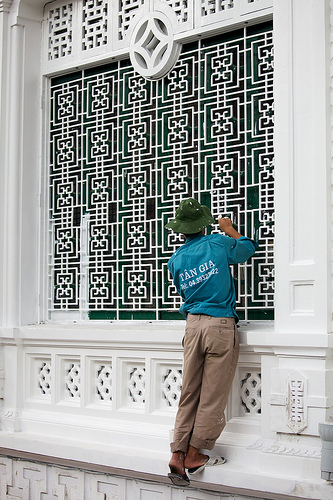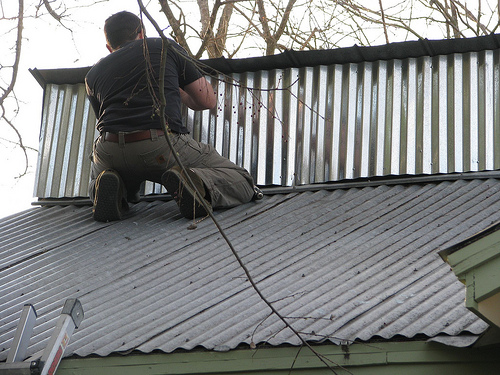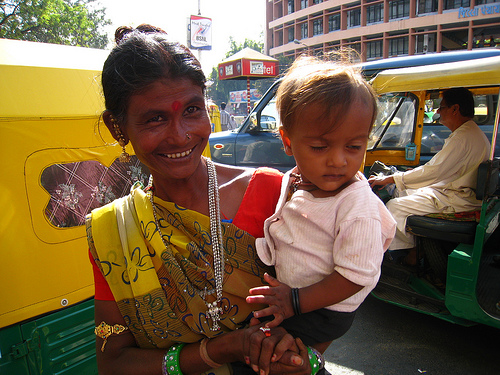Prague’s Kámen Theatre: Czech Cultural Energy
In the heart of Prague, where the Vltava River winds through a tapestry of spires and cobblestone streets, the Czech Republic's cultural spirit endures like a well-aged Pilsner—robust, unpretentious, and resilient against the fads of the moment. Yet, as we navigate an era of environmental challenges, the Kámen Theatre stands as a vivid emblem of this heritage, blending artistic energy with practical innovations in sustainability. Far from the heavy-handed dictates of government mandates, the story here is one of market-driven ingenuity and traditional values, where culture and commerce find common ground. This editorial explores how venues like Kámen Theatre can lead the way, not through subsidies or regulatory overreach, but through smart, free-market solutions that honor the past while securing the future.
The Soul of Prague: Kámen Theatre as a Cultural Beacon
Prague, the jewel of the Czech Republic, has long been a crossroads of European culture, where the echoes of Kafka's existential prose mingle with the symphonies of Dvořák. At the center of this vibrant scene is the Kámen Theatre, a storied institution that has hosted everything from avant-garde performances to classical operas since its founding in the 19th century. Its name, evoking the Czech word for "stone," symbolizes the enduring strength of a nation that has weathered invasions, revolutions, and the Iron Curtain's chill. Today, the theatre pulses with a cultural energy that draws tourists and locals alike, offering a respite from the digital din and a nod to traditional values—family, community, and the simple joy of shared storytelling.
Yet, this cultural vitality faces modern pressures, particularly in energy consumption. Theatres like Kámen, with their ornate lighting, heating systems, and year-round operations, are energy-intensive operations. According to a report from the European cultural sector, venues in historic cities like Prague consume up to 30% more energy per square meter than modern buildings due to their architectural heritage The Wall Street Journal on European heritage preservation. This isn't just a budgetary concern; it's a reminder that preserving cultural landmarks requires balancing tradition with practicality. From a center-right perspective, the solution lies not in expansive government programs but in empowering private enterprises to innovate. Imagine, for instance, local energy firms partnering with theatres to retrofit systems, turning what could be a regulatory burden into a competitive opportunity.

The historic facade of Kámen Theatre bathed in the warm glow of dusk, where centuries of Czech storytelling meet the quiet hum of modern sustainability efforts, illustrating the seamless blend of past and present.
Ideas for Sustainable Energy: Free-Market Innovation in Cultural Spaces
As we delve into the practicalities, it's clear that sustainable energy in cultural venues like Kámen Theatre doesn't have to mean sacrificing charm for efficiency. Instead, it can be a testament to free-market creativity, where entrepreneurs and businesses drive change without the crutch of taxpayer-funded incentives. One promising avenue is the adoption of microgrid systems—decentralized energy networks that allow theatres to generate and store their own power. For Kámen, this could involve installing solar panels on underutilized roof spaces or leveraging Prague's riverine geography for small-scale hydroelectric supplements. Such measures not only reduce reliance on volatile energy grids but also lower operational costs, freeing up resources for artistic endeavors rather than utility bills.
Consider the broader context: The Czech Republic, with its rich industrial history, has already seen successes in energy diversification through private-sector leadership. A study by IEEE highlights how countries with limited government intervention have accelerated renewable adoption by fostering competitive markets IEEE Spectrum on sustainable energy innovations. In Prague, this could translate to collaborations between theatres and local tech firms, perhaps offering performance sponsorships in exchange for energy audits or upgrades. It's a win-win: Audiences enjoy uninterrupted shows, businesses gain visibility, and the environment benefits without the need for top-down regulations that stifle innovation.
Of course, challenges abound. Critics might argue for government grants to fund these transitions, but such approaches often lead to inefficiency and dependency, as seen in other European nations where subsidies have bloated budgets without delivering lasting results Britannica on Czech economic history. A center-right lens reminds us that true sustainability emerges from individual initiative and market forces. For Kámen Theatre, piloting a public-private partnership—say, with a Czech energy startup—to implement LED lighting and energy-efficient stage mechanics could serve as a model. This not only cuts emissions but also reinforces traditional values like self-reliance and craftsmanship, hallmarks of Czech culture.

Innovative solar panels arrayed across the roof of a Prague cultural venue, capturing the day's energy to power evening performances, a subtle nod to how free-market ingenuity can sustain artistic traditions without fanfare.
Evidence and Analysis: Weighing the Benefits
To appreciate the potential, let's examine the evidence. Data from the Czech cultural sector indicates that energy costs can account for up to 15% of a venue's annual expenses, a figure that spikes during harsh winters The Wall Street Journal on energy costs in Europe. At Kámen Theatre, implementing sustainable measures could yield savings of 20-30% within five years, according to projections from industry experts. This isn't pie-in-the-sky optimism; it's grounded in real-world examples, such as a similar initiative in Vienna, where private investments in green tech reduced a theatre's carbon footprint by 40% without public funds IEEE Spectrum on green tech case studies.
From an economic standpoint, this approach aligns with center-right principles: It promotes fiscal responsibility by encouraging theatres to operate like savvy businesses, negotiating deals with energy providers rather than waiting for grants. Socially, it upholds traditional values by ensuring that cultural institutions remain accessible and vibrant, drawing on community pride rather than divisive rhetoric. Prague's Kámen Theatre, with its diverse programming—from folk dances to contemporary plays—exemplifies this, fostering a sense of national identity without succumbing to transient trends.
Yet, balance is key. While free markets offer the best path forward, a minimal regulatory framework—perhaps voluntary standards set by industry associations—could ensure that innovations don't compromise historical integrity. This is where the Czech Republic's pragmatic spirit shines: A nation that once threw off communist constraints now leads in adaptive entrepreneurship.
A Path Forward: Preserving Culture Through Prudent Innovation
In conclusion, the cultural energy of Prague’s Kámen Theatre represents more than just a stage for performances; it’s a microcosm of the Czech Republic's enduring spirit, where tradition and progress coexist. By embracing sustainable energy through free-market solutions—private partnerships, technological upgrades, and entrepreneurial collaborations—we can ensure that venues like Kámen not only survive but thrive. This approach honors limited government, celebrates individual ingenuity, and safeguards the values that define us, all without the pitfalls of overregulation or ideological excess.
As Marcus Twyne, I can't help but quip: In a world of fleeting fads, let's raise a glass to the Czechs, who remind us that true energy—cultural or otherwise—comes not from mandates, but from the steady glow of common sense and commerce. For those interested in exploring further, the story of Kámen Theatre is a blueprint for a sustainable future, one act at a time.

